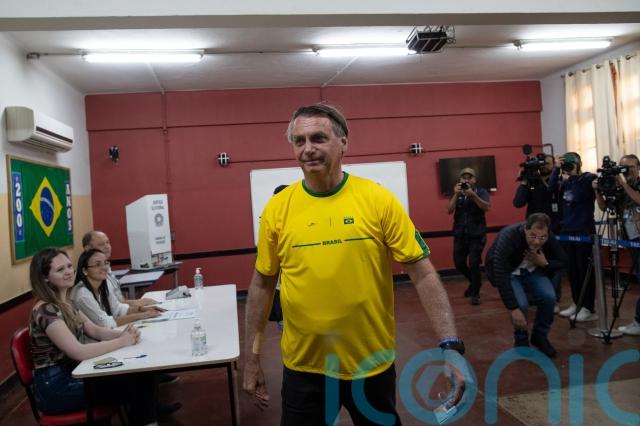
It appears increasingly likely neither of the top two candidates in Brazil’s highly polarised election race will receive more than 50% of the valid votes, meaning a second-round vote will be scheduled for October 30.
With 91.6% of the votes counted as of Sunday night, former Brazilian president Luiz Inacio Lula da Silva of the leftist Workers’ Party had a slight lead in the nation’s presidential election, with 47.3% support.
Incumbent Jair Bolsonaro was in second, with 44.2% support.

The highly polarised election will determine whether the country returns a leftist to the helm of the world’s fourth-largest democracy or keeps the far-right leader in office for another four years.
Mr Bolsonaro’s administration has been marked by incendiary speech, his testing of democratic institutions, his widely criticised handling of the Covid-19 pandemic and the worst deforestation in the Amazon rainforest in 15 years.
But he has built a devoted base by defending conservative values and presenting himself as protecting the nation from leftist policies that he says infringe on personal liberties and produce economic turmoil.

Mr Da Silva is credited with building an extensive social welfare programme during his 2003-2010 tenure that helped lift tens of millions into the middle class.
He is also remembered for his administration’s involvement in vast corruption scandals and his own convictions, which were later annulled by the Supreme Court.
Polls closed at 5pm on Sunday nationwide and because the vote is conducted electronically, initial results are out quickly. Final results are usually available a few hours later.
More than 150 million Brazilians were eligible to vote, though abstention rates can reach as high as 20%.
“We will most likely have a second round,” said Nara Pavao, who teaches political science at the Federal University of Pernambuco. “The probability of ending the election now (in the first round) is too small.”

Recent opinion polls had given Mr da Silva a commanding lead — the last Datafolha survey published on Saturday found a 50% to 36% advantage for Mr da Silva among those who intended to vote. It interviewed 12,800 people, with a margin of error of 2 percentage points.
The election wound up being far tighter than anticipated, both in the presidential contest and those for governorships and congressional seats.
“The far-right has shown great resilience in the presidential and in the state races,” said Carlos Melo, a political science professor at Insper University in Sao Paulo.
“It is too soon to go too deep, but this election shows Mr Bolsonaro’s victory in 2018 was not a hiccup,” he added.
Subscribe or register today to discover more from DonegalLive.ie
Buy the e-paper of the Donegal Democrat, Donegal People's Press, Donegal Post and Inish Times here for instant access to Donegal's premier news titles.
Keep up with the latest news from Donegal with our daily newsletter featuring the most important stories of the day delivered to your inbox every evening at 5pm.